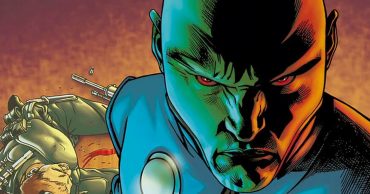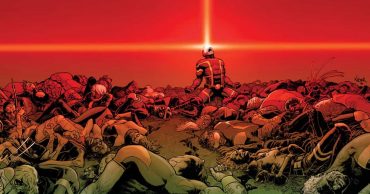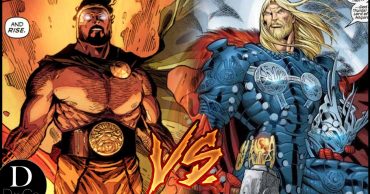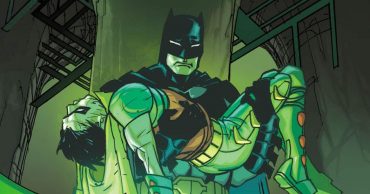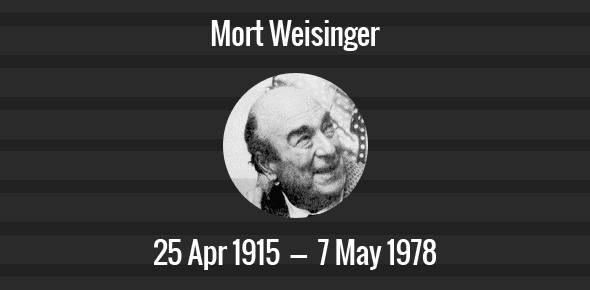
True comic fans are familiar with the incredible work of Mort Weisinger, editor of the Superman comics for over 2 decades -from the 1940s to the 1960s. He is best known for creating a more scientific explanation of Superman’s powers. Superman gaining his power from Earth‘s yellow sun? That was him. He also created popular story devices and characters in the Superman mythos like the Fortress of Solitude, Supergirl, and Brainiac.
The stirrings of genius
There’s much more to his story. For instance, many don’t know he fell in love with science fiction long before the concept was popular. He and his friend (the iconic Julius Schwartz) were so starved for this information they created a magazine called The Time Traveller in 1932. Keeping this in mind, it’s possible that Weisinger and Schwartz created the first fanzine. Weisinger also created a science fiction club called The Sciencers. Together he, Schwartz, and the Sciencers wrote the short, but informative, biographies on their favorite science fiction writers found in their magazine.
They gained subscribers by contacting those who’d written to professional science fiction magazines, like Amazing Stories, in the past. After building a decent following, the fanzine shifted its focus to original stories. Not long after, in 1933, Weisinger changed its name to Science Fiction Digest. Another name change (to Fantasy Magazine) happened a year later when it attracted submissions from the authors they highlighted in the beginning.
Stepping into destiny’s path
Handling the ins and outs of a popular magazine provided a learning curve that’s hard to duplicate. Weisinger and Schwartz gained a lot of experience working with publishers and writers and it wasn’t long before they became literary agents. Weisinger continued in this vein for the rest of the 30s. But, around the time that World War II started, he transitioned to the editorial side of the business. While editing the Thrilling Wonder Stories, he noticed that readers loved science fiction tales that focused more on the fiction aspect. He encouraged his writers to highlight the fantastical and action-packed elements of the stories and shy away from detailed scientific theories. Audiences ate it up.
This innovative thinking put him on a collision path with the comics industry. The prose science fiction market was losing some of its luster so he had to find another form of employment. His previous work helped in this regard and it wasn’t long before DC Comics hired him as an editor. A short time after that, the government drafted him in the war. But, always the innovative thinker, he created Aquaman, Speedy, and Green Arrow before he left for boot camp.
Taking destiny by the reins
Once his tour of duty was complete, he went back to work for DC. There he found an expanding product line in need of his editorial expertise. Whitney Ellsworth, who’d handled the Superman titles during the war, had found massive success. The popularity of the character cultivated under his reign led to his involvement in the radio, television, and film adaptations and he could not deal with the comic as well. As a result, they tapped Weisinger to handle Ellsworth’s old job. He also becomes the story editor of the TV show, Adventures of Superman.
Fast forward to the 1950s and Weisinger is now Superman’s Editor-in-Chief. It’s no surprise – he had a knack for giving the audience what they wanted, even if they didn’t know it at the moment. He understood his demographic and took advantage of this. He gained a reputation for talking to ordinary kids who read his stories. These kid-based focus groups gave him the insight he needed to better orient Superman to his target audience.
This wasn’t all he accomplished. The creativity sparked in his youth allowed him to expand on some core concepts and characters in new and exciting ways. Under his leadership, Jimmy Olsen and Lois Lane got their own titles. New kryptonite and Kryptonians alike showed up in greater frequencies and varieties. He changed the Superman mythos forever.
The end of an era
The Weisinger Era lasted until 1970 when he gave up his post. By this time, his concepts were more outlandish than inspired. The predicaments that Superman encountered were more fantastical than science fiction. It was clear the pressure and responsibility were too much.
Surprisingly enough, his old friend Julius Schwartz took up the title Weisinger vacated. But, upon further investigation, it was in name only. Not to say Schwartz was a figurehead but, to highlight the incredible feat that Mort Weisinger accomplished. DC hired a team of editors to handle what Weisinger did by himself. A different editor made the daily decisions on each book. As a result, the various titles evolved into slightly different versions of Superman. This superhero was never the same again.
The Bottom Line
Mort Weisinger was a literary genius whose light shone brightest in the unconventional medium of comics. HIs additions to the DC universe will forever resonate with audiences around the world. Like Shakespeare, Van Gogh, and others, his legacy will continue to inspire innovative thinking that will light the fires of future genius.
 Follow Us
Follow Us
